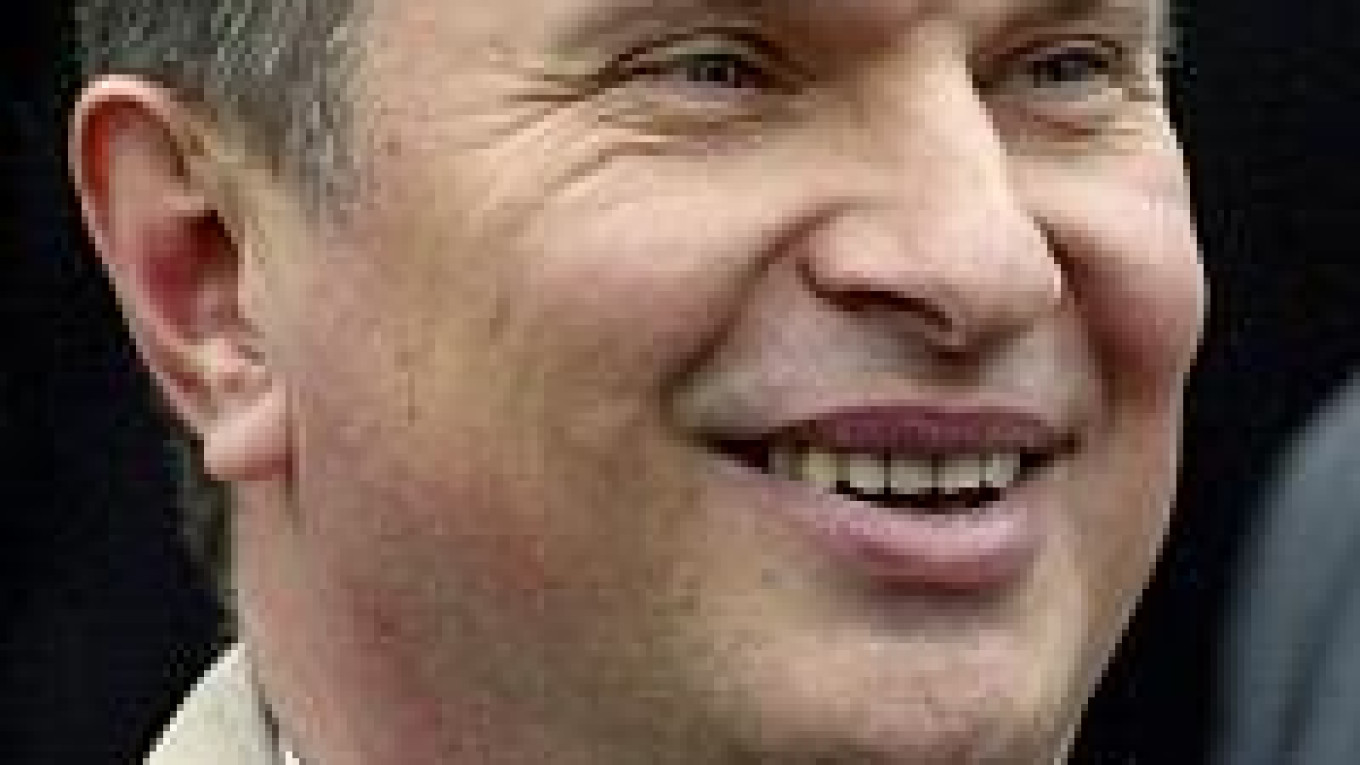Sechin is a leading member of the siloviki clan of officials with secret security backgrounds who believe in the supremacy of the state.
"These are not the sort of guys you want to go out drinking with. They're relatively humorless, and their patriotism may rub you up the wrong way," said Eric Kraus, chief strategist at Sovlink Securities.
Sechin, whose early career was as a translator, also does not have any known business experience.
"This guy is an administrator, he's there to keep control of the money," Kraus said.
"Sechin is kind of faceless, the market will have to find out a lot more about him."
The shock takeover of Yugansk assets by state oil firm Rosneft has cast an unwelcome spotlight on its chairman, Sechin, 44, believed to be the most influential member of President Vladimir Putin's inner circle.
"Sechin is our No. 2," said Alexander Shokhin, a former Russian chief debt negotiator.
"Sechin is one of the most powerful men not only in the political life of Russia, but also in our economic life."
Analysts and observers believe that Sechin masterminded the crackdown on Yukos and played a key hand in the state's takeover of the energy sector. Insiders say Sechin resented the defiance of authority of Mikhail Khodorkovsky, the founder of Yukos, who is now in jail.
In a bizarre twist, Sechin's daughter recently married the son of Prosecutor General Vladimir Ustinov, who is in charge of the Yukos case.
Sechin's appointment in July as chairman of Rosneft, which is due to merge with Gazprom, had already given the markets an indication of how the Kremlin intended to consolidate its control over Russia's riches.
Little is known about Sechin's career before he teamed up with Putin in the St. Petersburg city administration in the early 1990s. A graduate of Leningrad State University in 1984 with a degree in philology, he keeps such a low profile that even the Russian press calls him a "phantom."
Many observers and analysts believe Sechin is a graduate of the KGB, to which Putin belonged.
Shokhin said Sechin had worked in Angola and Mozambique and specialized in Portuguese-speaking countries in his former job, although his official biography makes no reference to these assignments.
Russian media reports say Sechin in the mid-1980s worked as a translator in Mozambique for the Soviet state company Tekhnoexport, which was responsible for arms supplies, before serving as a military translator in Angola.
Analysts say Sechin is not a man who flies solo and everything he does reflects Putin's will.
A Message from The Moscow Times:
Dear readers,
We are facing unprecedented challenges. Russia's Prosecutor General's Office has designated The Moscow Times as an "undesirable" organization, criminalizing our work and putting our staff at risk of prosecution. This follows our earlier unjust labeling as a "foreign agent."
These actions are direct attempts to silence independent journalism in Russia. The authorities claim our work "discredits the decisions of the Russian leadership." We see things differently: we strive to provide accurate, unbiased reporting on Russia.
We, the journalists of The Moscow Times, refuse to be silenced. But to continue our work, we need your help.
Your support, no matter how small, makes a world of difference. If you can, please support us monthly starting from just $2. It's quick to set up, and every contribution makes a significant impact.
By supporting The Moscow Times, you're defending open, independent journalism in the face of repression. Thank you for standing with us.
Remind me later.


